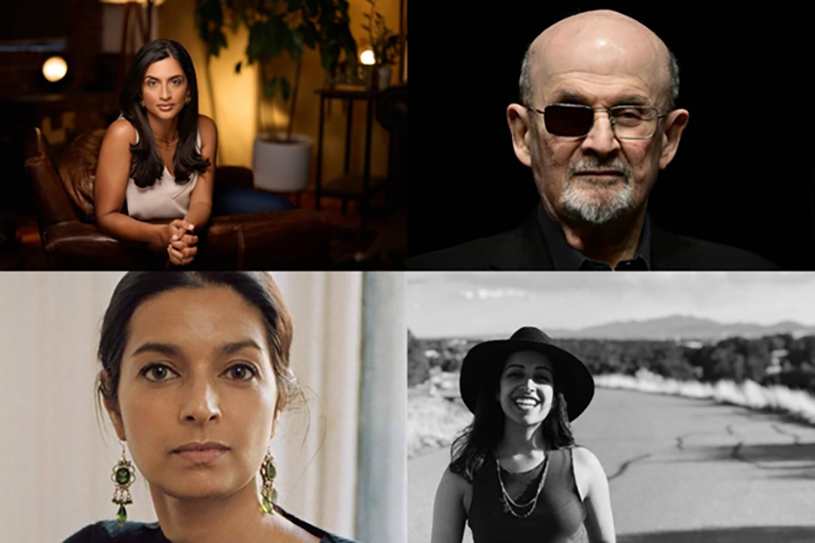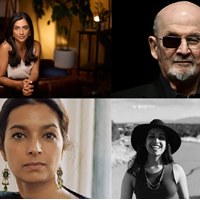Indian‑Origin Authors Rewriting American Literary Landscape

Indian‑origin writers in the United States are doing more than just writing—they are mapping new territories of identity, memory, and language. With educational paths that span continents and lives rooted in both familial tradition and personal ambition, these storytellers weave together worlds, giving voice to experiences that cross borders. Here’s a glimpse at ten such authors shaping American literature and the classrooms that fueled their art.
Salman Rushdie now resides in Manhattan. From his upbringing in Bombay at Cathedral & John Connon and Rugby School in England to his history studies at King’s College, Cambridge, he merged postcolonial perspective with imaginative fiction. His major works span Midnight’s Children, The Satanic Verses, Haroun and the Sea of Stories, Victory City, and Joseph Anton.
Abraham Verghese, based in Palo Alto, California, was born in Ethiopia to Malayali parents educated in medicine and teaching. He earned his medical degree at Madras Medical College, trained across Tennessee and Boston, and later completed an MFA at Iowa Writers’ Workshop. Now a Stanford professor, his work—including Cutting for Stone and The Covenant of Water—blends clinical precision with emotional storytelling.
Pico Iyer divides time between California and Japan. Son of two scholars, Iyer studied English literature at Eton, Oxford, and Harvard. His essays on stillness, solitude, and global interconnectedness appear in The Art of Stillness, The Half Known Life, and Video Night in Kathmandu.
Siddhartha Mukherjee, living in New York, pursued biology at Stanford, was a Rhodes Scholar at Oxford, and studied medicine at Harvard. His deeply human narratives in The Emperor of All Maladies, The Gene: An Intimate History, and The Song of the Cell bridge science and story.
Jhumpa Lahiri calls Princeton home. Born in London, raised partly in Rhode Island, she studied at Barnard and Boston University before earning a PhD. Her bilingual storytelling appears in Interpreter of Maladies, The Namesake, and Translating Myself and Others.
Tania James, in Washington, D.C., combined visual and environmental studies at Harvard with an MFA at Columbia. Her fiction, including Loot and The Tusk That Did the Damage, explores diasporic life through rich detail.
Vauhini Vara, based in Colorado, studied international relations at Stanford, then creative writing at the Iowa Writers’ Workshop. Her speculative realism in The Immortal King Rao and This Is Salvaged reflects technological and cultural entanglements.
Parini Shroff in the Bay Area earned a law degree at Loyola before switching to an MFA at University of Texas, Austin. Her debut, The Bandit Queens, satirizes caste, crime, and gender.
Zara Chowdhary, in Madison, WI, studied media and performance at Leeds and creative writing at Iowa State. Her novel The Lucky Ones dwells on memory, displacement, and being between worlds.
Asha Thanki, in Minneapolis, studied culture and politics at Georgetown before pursuing fiction at University of Minnesota. Her debut novel, A Thousand Times Before, examines inheritance, invisibility, and grief in Midwestern life.
Together, these authors map literary highways between India and the US—bridging classrooms, cultures, and the enduring questions of belonging.


















